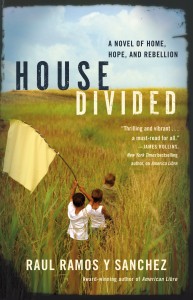I recently completed the final profile of my family’s members. The anecdotes will keep coming, of course, but I won’t be focusing on a single member at this point.
I’ve written before of how Latino families tend to be close, and indeed, my cousins and I were raised more like siblings than distant relatives.
Still, I don’t know if it’s ironic, coincidental, or completely logical that people who grew up in a tight bunch are now so scattered around the Western Hemisphere.
Perhaps it’s the confidence that we will always remain in touch that has allowed us to branch out. Or maybe it’s just our immigrant roots that propel us onward.
I spoke to many of them last month, on various long-distance phone calls and/or email exchanges around Christmas. I’ve written before about how Hispanics tend to treat Christmas as a true fiesta and not a somber obligation.
Decades ago, shortly after my cousins from El Salvador came to America, we had our first mongo-huge event. What I remember most was Cousins #4 and #5, speaking to each other in fast overlapping English and Spanish. Half of their communication consisted of attempts to get their points across. The barrier would frustrate most adults, but to the girls, it was a hilarious game that never got old. Their pantomime and mangled words amused them so much that they often forgot what they were trying to say and just laughed in harmony. Their medium truly was their message.
At one of our last get-togethers, some of the cousins were holed up in a bedroom, talking about the pressures and stresses of the holidays. Of course, one by one, we all wandered into the room, until we had to stop bitching about the burdens of family because we were all pretty much crowded in there, which negated our insistence that we spent too much time together.
We see each less these days, of course. New bonds have formed over the years. For example, one of Cousin #2’s children shares my name. I presume that this connects us, although he is a toddler and doesn’t seem to recognize the significance.
When I was introduced to him, his mother referred to me as his uncle. Someone else in the family said that we were cousins, twice removed or something like that. I honestly don’t know what our precise connection is, and like him, I won’t give it a lot of thought.
It’s enough that we’re family.












